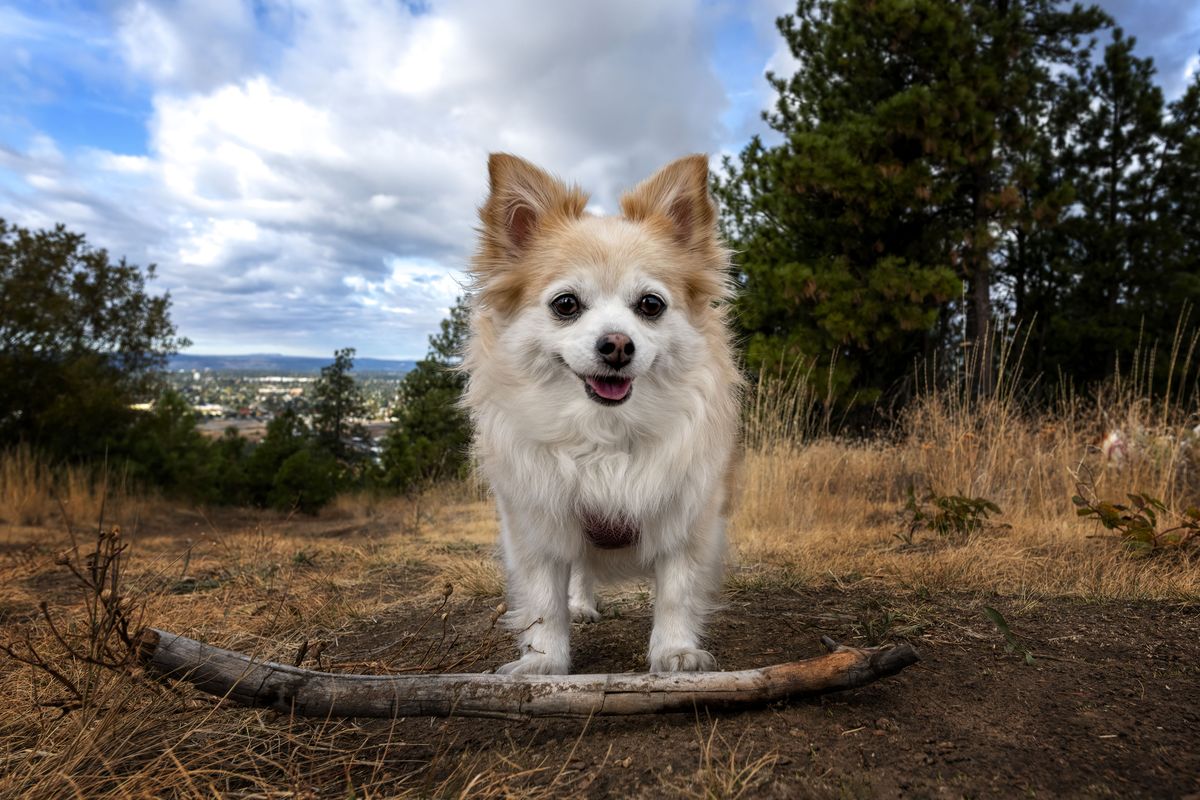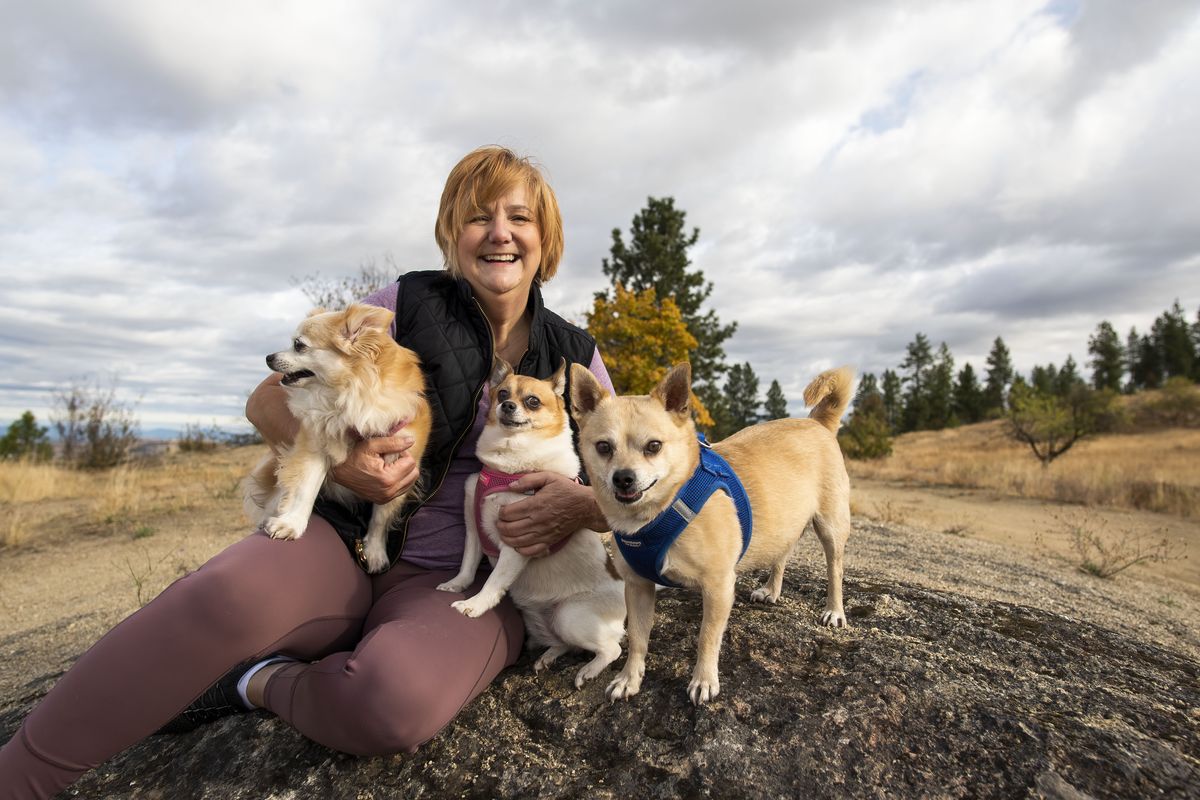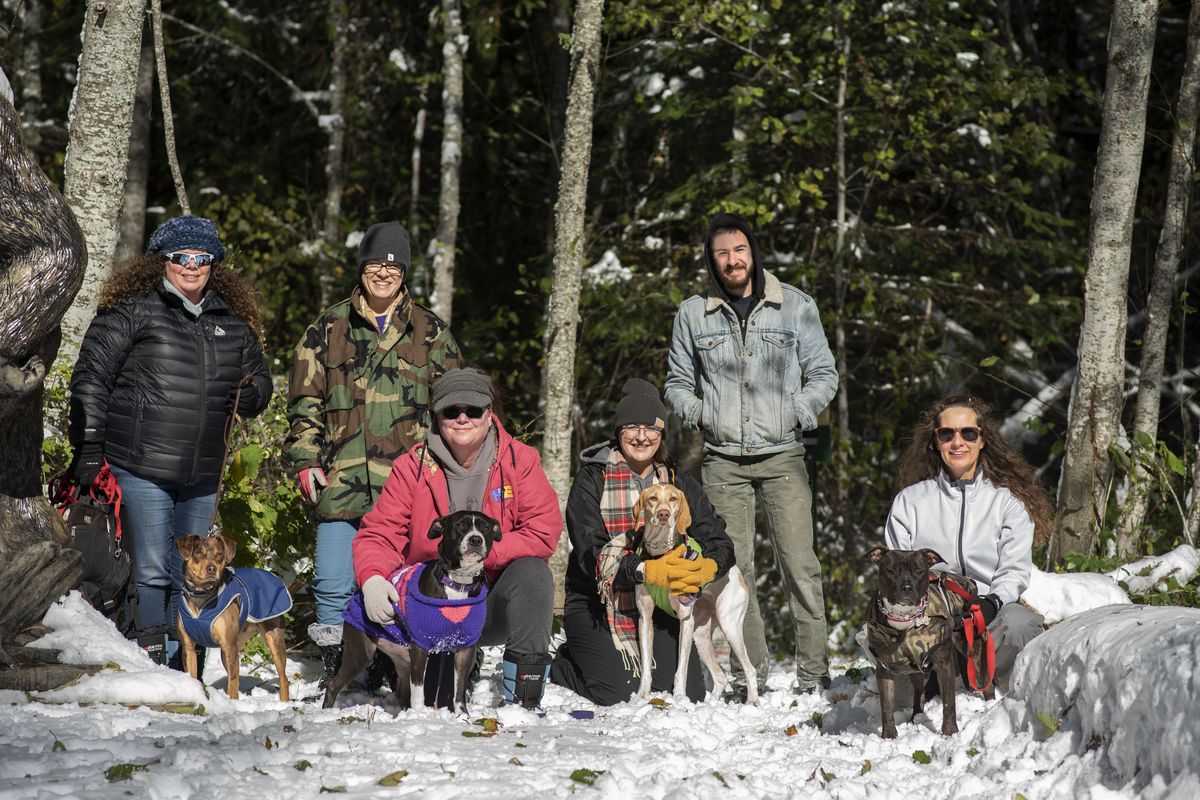Hiking with dogs: Busy paths underscore need for respectful pack ambassadors
Melissa Gray enjoys the outdoors with her hiking pals (Angela Schneider)
More and more people have discovered the great outdoors this season.
It’s an escape from the day-to-day stress of the coronavirus pandemic, lockdowns, job losses, politics and so on and so on.
That means more people on the hiking trails, and more people with dogs on the hiking trails.
The busy paths underscore the need for dog lovers to be good ambassadors for their pack.
Melissa Gray, who organizes group hikes for women with dogs, said she stresses the importance of being respectful on the trail.
“If somebody sees a whole group of women hiking with dogs and the dogs are well-behaved, that’s going to make a good impression for the community around us,” she said. “It’s a small world. If we aren’t respectful, someone else may have an awful experience with their hike and get turned off by all people with dogs.”
A California transplant from 25 years ago, Gray hikes the amazing trails throughout the Pacific Northwest with her three little dogs. Judging each trail by its canine friendliness, the experienced hiker leaves them home for trails that may be too difficult for her pomchi Abby and her chihuahuas Tucker and Ceci.
Gray keeps them on leash where required by law. Occasionally, she’ll let them run free where permitted but is careful to rein them in when she hears or sees people or other animals.
“My biggest concern is dogs are unpredictable,” she said. “We don’t know who’s out here that may be afraid of dogs, maybe has had some trauma with dogs, or just don’t like dogs. And that’s their right. It’s really important to remember that everybody may not be on the same page with us dog lovers.”
She keeps a number of guidelines for herself and the other women on their group hikes.
Gray advises to keep dogs on leash, particularly where the rules demand that hikers do, and pull them off the path when others approach. If dogs are off-leash, she never wants to see them run up to other hikers without their permission.
Tucker, her chihuahua rescue boy, has leash aggression.
“He doesn’t have control when he’s on leash and he can’t get away, so he puffs up and becomes snappy,” she said. “That said, he’s not aggressive. He just doesn’t like other dogs in his face while he’s on leash.”
If she had an aggressive dog, she said, she wouldn’t take him hiking on busy trails without a muzzle.
Gray does her best to keep her dogs from approaching other pups without first asking the fellow hiker if their buddies are dog-friendly. Even then, she reminds to approach with care and expect the unexpected.
“I love letting my dogs off-leash, but they don’t go anywhere,” she said. “But if I can’t take them off, I won’t take them off. Dogs don’t have executive functioning in their brains. They aren’t capable of formal thought, so there really isn’t anything such as 100% recall.”
That’s important to remember when wildlife are or could be present – also known as “always” in the Pacific Northwest.
Leaving a dog to roam and go off trail could put a hiker at risk of wildlife encounters. Dogs have been known to draw bears and other animals back toward their owners.
“I’m always looking,” Gray said. “I’m ex-military, so I hear things in the woods. I’m always looking for signs that make me keep the dogs on leash. Abby and I did Scotchmen Peak earlier this month and Abby was on leash the whole time, because of the bears and goats.”
And last, but certainly not least, Gray implores hikers to pick up after their dogs.
“Always,” she said, noting leaving dog poop behind not only makes the environment unpleasant for other hikers but can introduce foreign bacteria and parasites into a fragile ecosystem.
Mental health days
Gray encourages people to get outdoors and bring a dog.
A mental health professional with a private practice in Spokane Valley, she advocates for hiking with dogs as a therapeutic activity.
“Being outdoors improves our mood, helps with depression and anxiety,” she said. “And having an animal is well-researched. They give us longer, happier, healthier lives.”
Gray, a foster parent for the Spokane Humane Society, recommends borrowing a friend’s dog for a hike or, for a more permanent solution, adopting a pet in need from one of the shelters or rescues in the area.
“We get grounded when we’re out in nature with our dogs,” she said. “There is kind of this oneness with the world. It’s really amazing.”
Just experience it respectfully.



